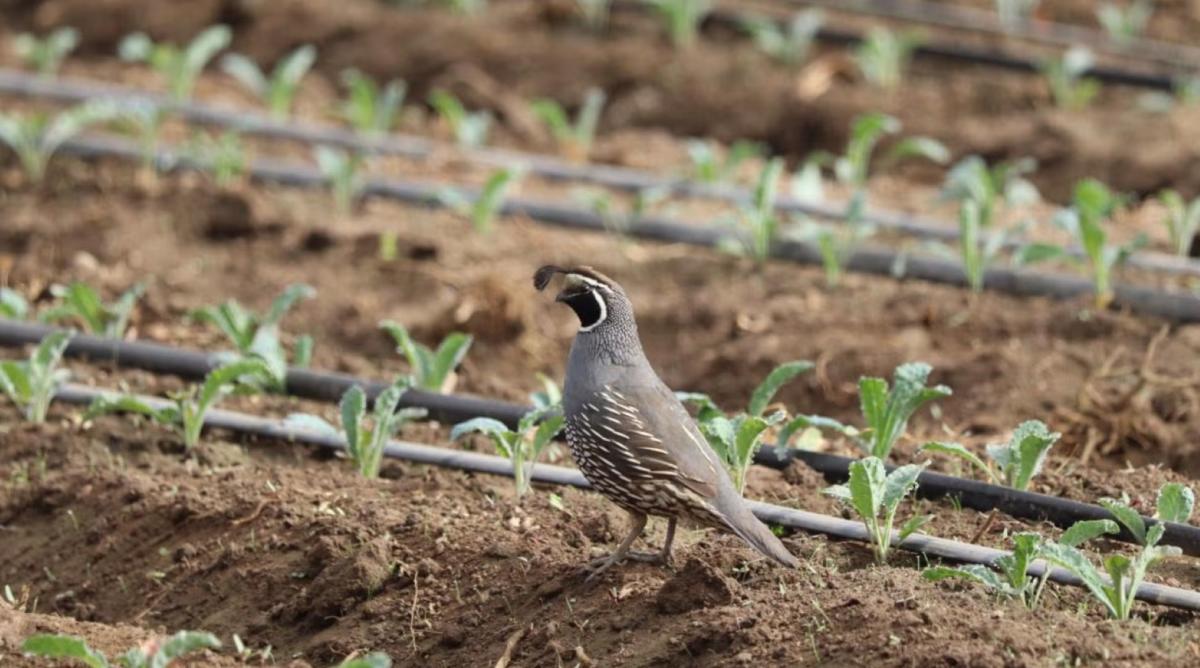
Bird poop on your lettuce might not be as risky as you think.
Researchers at the University of California, Davis found that small bird droppings aren’t much of a food safety risk for crops, pushing back against long-held fears that wildlife near farms could spread harmful pathogens such as E. coli, as reported on Phys.org. This is good news for farmers and anyone who loves leafy greens, showing that not all bird poop means trouble for your food.
Since a major E. coli outbreak shook the leafy greens industry in 2006, growers have been under pressure to eliminate natural habitats near farms to keep wildlife away from crops. But the research, published in the Journal of Applied Ecology, suggests that not all bird droppings are created equal — and size matters more than species.
Advertisement
Advertisement
“We wanted to find out the true risk of wild birds to food safety,” said the study’s lead author, Austin Spence.
“If it’s the size of a quarter, don’t harvest near that. If it’s a tiny white speck, it’s very low risk and probably fine,” Spence added. The study found that pathogens are much more likely to survive in the larger droppings of big birds such as turkeys, while tiny droppings from smaller birds such as sparrows and bluebirds dry out quickly and don’t provide a hospitable environment for bacteria.
This finding is a big deal for farmers, who often lose crops because of overly cautious food safety rules. Knowing that small bird droppings carry minimal risk means growers can cut down on unnecessary waste and feel more confident keeping wildlife-friendly practices on their farms. Researchers even estimate that farmers could harvest up to 10% more of their fields by skipping no-harvest zones around low-risk droppings.
Watch now: Ecologist shares why she remains hopeful in the face of climate doom and gloom
At the same time, farmers are finding easy, eco-friendly ways to protect their crops without relying on harsh chemicals. They can bring in helpful bugs to keep pests in check instead of using pesticides. They can also place orange peels to keep pests out of their gardens. Research from the University of California suggests that integrating more natural pest control methods can improve crop yields while reducing the environmental impact of farming.
Advertisement
Advertisement
What’s most encouraging is that farmers can prioritize food safety without giving up conservation efforts.
“There have been no studies to date that suggest habitat removal improves food safety,” said Daniel Karp, a professor at UC Davis.
In fact, the U.S. Department of Agriculture notes that conservation efforts on private lands not only support healthy ecosystems but also lead to more productive, sustainable farms.
The findings show that protecting crops and supporting wildlife can work together. Even bird droppings can shift how we think about balancing food safety with sustainable farming. Sometimes, doing less is all it takes to get better results for our food and the environment.
Join our free newsletter for weekly updates on the latest innovations improving our lives and shaping our future, and don’t miss this cool list of easy ways to help yourself while helping the planet.
EMEA Tribune is not involved in this news article, it is taken from our partners and or from the News Agencies. Copyright and Credit go to the News Agencies, email news@emeatribune.com Follow our WhatsApp verified Channel




